You have to go back 118 years to find a Lions tour as odd, so unlikely to happen, as the 2021 version.
In 1903, a Reconciliation Tour was held. The Boer War had only ended in May of 1902. Some have called this brutal conflict the opening chapter of an exceptionally bloody century; the first modern war, in which the tools for killing made killing too easy.
A year after the blood had dried in the South African soil (about 22,000 British and Commonwealth fighters, including many Australians and New Zealanders, 6000 Boer combatants, and 46,000 concentration camp civilians), with over 300,000 horses slain, and the equivalent of 200 billion pounds Sterling spent, and most of the farms in the Orange Free State and Transvaal burnt or destroyed, 21 Lions came to play rugby.
Then as now, money talks. The tour had to go on in 1903, not only in British strongholds like Cape Town, East London, Port Elizabeth, and Durban, but also far inland, in battered towns like Pretoria, Pietermaritzburg, Kimberly, and Johannesburg itself. They played South Africa in three Tests, drew two, and lost the final one, in Cape Town, 8-0 (then, two tries). It was the first Test loss for what became the Lions.
The lure of riches is the constant, whether in the aftermath of the Boer War, or during a global pandemic.
Gold was discovered in South Africa in 1884. The President of the Boer Republic of the Transvaal, Paul Kruger, was not happy: “This gold will cause our country to be soaked in blood.” The mining camp on the Vaal River turned almost overnight into the wild free city of Johannesburg.
Oom Paul was right. It was not long before the British Empire annexed the Transvaal. 1881, the Boers fought fiercely and reclaimed their independence.
The Boers (Dutch for ‘farmers’) had trekked north in the 1800s to escape British rule. They were deeply religious and independent. In 1881, the Boers rebelled against British rule, and retained a fragile freedom.
In 1895, Cecil John Rhodes funded the Jameson Raid to seize the Transvaal. It failed. In 1899, the British government — the wealthiest power on earth — sent troops to South Africa. The London press believed it would be yet another victory, and speedy.
What happened shocked the world. Britain lost three battles and over 3000 men. The Boers refused to stand in formation and fight, preferring mobile cavalry, disruption, and hit-and-run tactics to disrupt supply lines. But they were also armed with quick-firing rifles, machine guns, and artillery.
After Queen Victoria announced: “We are not interested in the possibilities of defeat; they do not exist,” Britain sent nearly half a million troops from across the Empire to overwhelm the 57,000 Boer commandos. Pretoria and Bloemfontein, capitals of the Boer Republics, fell the next year.
However, the Boers refused to surrender. A long, gruesome guerrilla campaign ensued, and the British response was to destroy Boer farms and round up Boer women and children to put in what became known, for the first time concentration camps. At surrender, in May 1902, over 26,000 Boer women and children had died, along with over 20,000 Black civilians in separate camps, of starvation and disease.
A rugby tour, less than a year after this bitter surrender, with train journeys past wastelands, and burnt houses and fields, and rotting animal carcasses in the veld and dams is hard to fathom. Yet tour the Lions did.
The goal was conciliation: not just between Crown and subject, but also to unify the English-speaking provinces of Natal and Cape Province with the former Boer republics. Rugby was seen as glue. The British had never lost a series before and had easily handled the South Africans in 1896. But over 20,000 Boers had been taken prisoner of war to foreign British territories, where rugby was taught. They came back different.
Sport can divert us from harsher conflict and sadder times. But it can also provide an excellent avenue for rage and revenge, legally. A South African player in 1903, left wing Andrew Morkel, had his wife in a British concentration camp.
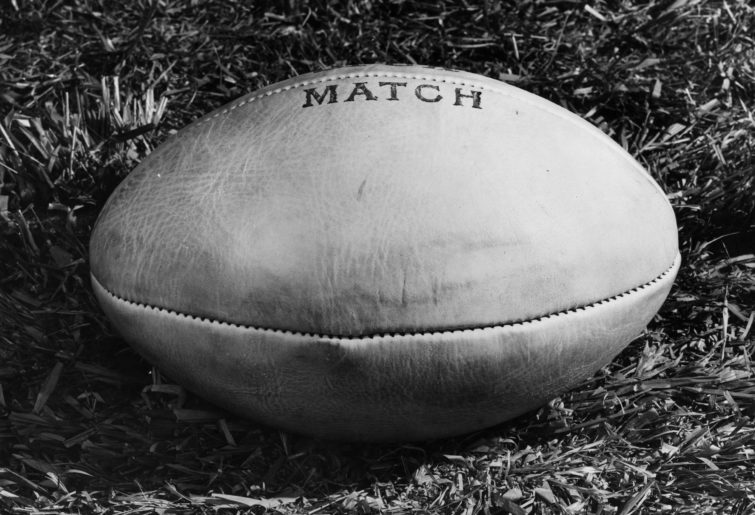
(Photo by Fox Photos/Getty Images)
The British used 11 forwards and ten backs in 1903. The mix was nine English, six Scottish, five Irish (including two Victoria Cross winners), and one solitary Welshman, Reg Skrimshire, who ended up the highest scorer on tour, and stayed on in Cape Town to live and play for Western Province. Some of their players were already in South Africa, like Cath Mullins, an old boy from St Andrews in Grahamstown, in the Eastern Cape, who was a proto-Lion instead of a proto-Bok.
Maybe it was the length of the sea journey back which prompted so many Lions to remain in South Africa, but Reg was not alone, from this and previous tours. The most famous Lion (from 1896) who remained was the Right Reverend Walker Carey, who became the Anglican Bishop of Bloemfontein. From 1903, there was a hooker named William McEwan, who came to South Africa to fight, and then stayed, and played against South Africa (not yet named the Springboks, an event that occurred in the 1906 tour to the Home Nations).
Dr Alexander Frew, a prop from Scotland, had come to South Africa as a surgeon in a concentration camp, and stayed on to play for (and captain) South Africa. He lived the remainder of his life in Cape Town.
Flanker ‘Birdie’ Partridge of the Welsh Regiment came on tour, and then remained, playing for Transvaal. Prop Jimmy Sinclair and No eight Charles Brown were prisoners of war of the Boers and ended up playing the Boers in rugby.
These early Lions sent some elite athletes. Winger Alfred Hind ran the 100 yards in 9.8 seconds ten times. Several were two or three sport stars. But they ran into hardened local sides, losing the Test series and also losing three straight times to various forms of the Western Province sides.
Touring South Africa was never the same after 1903.
In fact, Scotland and Wales have never beaten South Africa in a rugby Test outside of their home nations. Both have yet to win in South Africa. Even factoring in the matches in Edinburgh, Scotland is generally 15 points behind the Springboks (the average historic score is 26-11 for South Africa).
The average Bok-Wales score line is 26-16. Ireland has won (once) in South Africa, and just seven times out of 26 Tests total anywhere.
The average Bok margin over Ireland is 19-14.
England has fared the best: the English have won four Tests in South Africa over the years and drawn once (in 16 attempts). The average score has been 21-17 for the Boks.
This is the true state of affairs, even today. If any of the four Home Nations were to tour South Africa in 2021 for three Tests, they’d all be underdogs, with England having the best shout.
The Lions have a much better record in South Africa: 17 wins of 46 Tests (37 per cent), and four series wins of 13. The average score between the Lions and South Africa is a wafer-thin 13-11. All of these margins are a bit compressed because they include so many decades of four-point tries, and far less ball in play.
The Lions are the best form of these Home Nations: the numbers are clear.
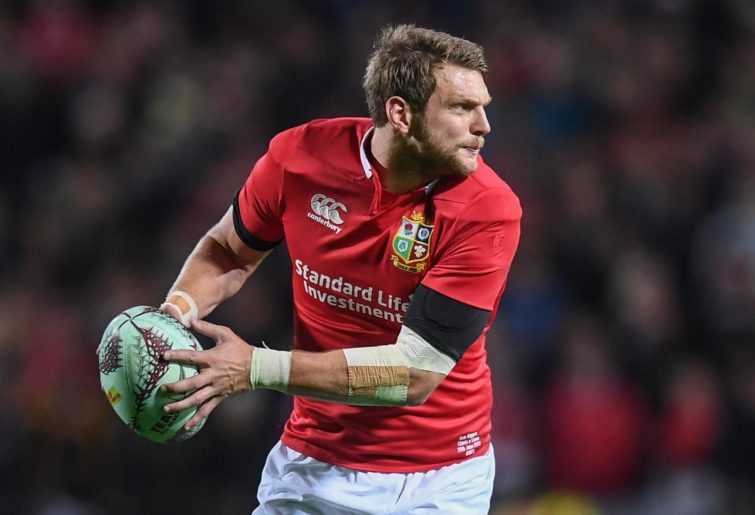
(Photo By Stephen McCarthy/Sportsfile via Getty Images)
No matter how many times a Lions fan or pundit claims it is a disadvantage to pull together a scratch team from four nations, it is still always false. The Lions are able to avoid having any marginal players on the pitch, at all times. The Lions play the Boks better than the individual Home Nation teams do.
This time, it should be Lions time, because South Africa has even less cohesive game time than the Lions. Famously, the Boks will take the field in Cape Town having only played two Tests since they won the Rugby World Cup, against Georgia, of all teams.
The 500-minute rule is defunct. A tenth of the squad was burned in a fire pit in Ireland. Several now speak fluent Japanese, French, or Scouser. The Bok coach is a physio friend of Rassie Erasmus from army days who never played top-grade rugby.
A miniature outbreak of COVID in the Bok camp happened inside a larger third national wave and a level-four lockdown. Practices were cancelled. Combinations were untested. Crowds will not be welcomed, and Bok players will be in the same hotel bubble as the visitors.
The only home-field advantage could be the actual fields: hard and fast like in Japan, where Scotland and Ireland faded like freckles in the moonlight, and the Welsh and English dropped like flies in the knockouts.
If there was ever a time to back the Lions, it is in 2021.
Warren Gatland, Waikoto hooker with the same hairstyle his whole life, is in the peak of the prime of his powers. He has a Wallaby scalp as a Lions coach and eked out a series draw with his homeland at Eden Park, the hardest rugby place in the world to visit and leave without a loss. He does not have a Lions series win over the Boks.
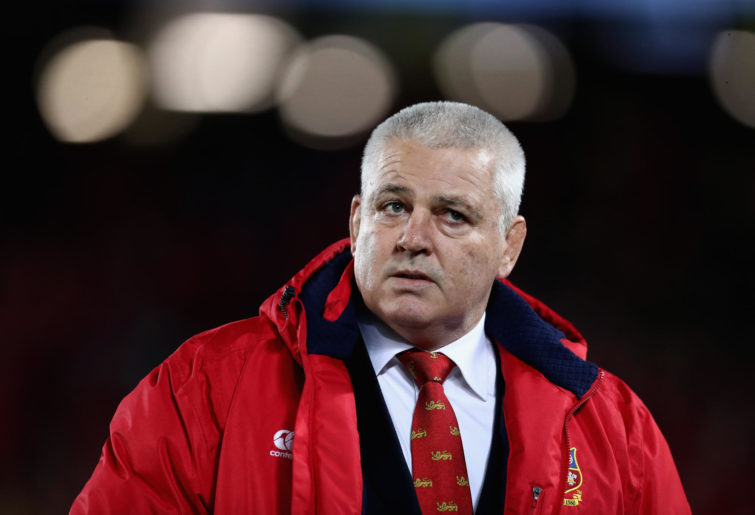
(Photo by David Rogers/Getty Images)
Watching the superb Lions documentary from 2009, Gatland seems the most prescient. He beseeches the pack to understand what they are about to face. He begs them not to see the Boks as the same ones they have seen on lonely end-of-year tours, just finishing in Cardiff or Dublin without fire. He tells them the Boks at home are a different animal; that they don’t respect British players as hard enough to invade them. Not now.
And it is Gatland who looks the most defiant in the film, more so than the head coach, who weeps wanly.
Gatland is enraged after each of the first two Tests, because in the end, the Lions were a bit bullied, and only hung in the fight because Rob Kearney, Jamie Roberts, Stephen Jones, and Brian O’Driscoll would not quit.
Rassie Erasmus may actually still be the head coach, no matter how far up Jacques Nienaber has gone (and he has, because he is loved and trusted by the players, and has a tactician’s brain).
Erasmus was a fast flank, a bit loose, and loved to try for the most difficult intercept in rugby: the pass from nine to ten from a scrum. It is virtually impossible, but Erasmus detached early, was quick with long arms and hands, and did not have to fear a card for deliberate knock-ons.
In times of great pressure, as Gatland and Erasmus are about to face because this tour will probably define their careers, coaches and players tend to revert to old habits. Why would this define their careers?
If Gatland loses, he may be seen as having peaked in 2017 and the Chiefs debacle will look like the beginning of the decline, with a general sense that he was great at getting good players to be better, but perhaps not equal to the highest moments at World Cups and Lions tours.
If he wins, he will be seen as one of top three coaches of all time, while a victorious Erasmus would be seen a pure genius, temperamental and maniacal. An Erasmus loss at home would make it seem as if he was a bit flaky, a bit of a fluke, and overthought himself.
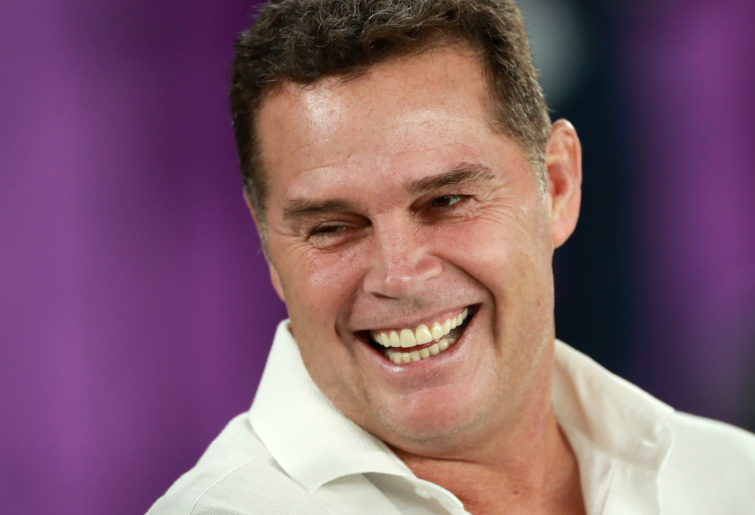
(Photo by David Rogers/Getty Images)
So, pressure should bring reversion. To what?
Gatland seems to have decided, judging from his selections, that the Welsh way is the best way to beat the Boks, picking his boyos who have done it for him, or analogs from the other three nations who are actually better at the Welsh way than the Welsh, to create a fast pack with mongrel backed by big backs with mongrel. Along with that are impeccable set pieces, optimal kicking skills, and squad-wide grit and patience.
His problem, perhaps insoluble, was a paucity of great locks, scrumhalves, and outside centres. After Conor Murray, the pickings at nine are slim. If you think of a Test match against the Boks as requiring at least four top-class locks (because the worst of the four locks the Boks will throw at you is a Franco Mostert or RG Snyman), and maybe five (because Pieter-Steph du Toit is a very fast and fit lock, let’s be honest), the Lions are scraping with Jonny Hill or Adam Beard.
At the vital 13 spot, charged with stopping Cheslin Kolbe, Makazole Mapimpi, Lukhanyo Am or Jesse Kriel, and the wide channel forays of Willie le Roux) the Lions may play someone out of their preferred position (Robbie Henshaw or Elliot Daly) or an untested Chris Harris.
Of those problems, the lock issue looms largest. The only prototype lock on tour is Courtney Lawes, at 119 kilograms and two metres plus. The rest are too light (Hill), short (Maro Itoje), and too weak (Iain Henderson) in an arm wrestle.
Why is that such an issue? Well, if 20 per cent of your squad is two metre-plus locks (as the Boks do it), height becomes an issue in almost every regard: passing lanes, tackling, offloads, aerial, restart, binds, mauls, and vision.
And beyond height, it is power. Big aggressive athletes use power to apply pressure, squeezing every ounce of misery out of scrums, and herding foes into a cordon of pain with high wings ready to run all day. Yes, there is space on offer out wide, but as the All Blacks showed, that space is bad. The good space is midfield, just over the line, with awkward kicks.
Erasmus and Nienaber will bank on rock-hard defensive structures fuelled by the passion of the best Bok sides at home to prevent tries, bully visitors, and convert almost every chance to points, the length of the field. Having only lost Francois Louw (with ready substitutes) and Tendai Mtawarira (Steven Kitshoff is the perfect successor) from the World Cup-winning side, the Boks only need a couple of youngsters to step into the light.
The Boks will have a strong scrum. The lineout will be imperious, if Malcolm Marx can find his jumpers. Kicking will be a strength, too. Cohesion may be found, just by muscle memory.
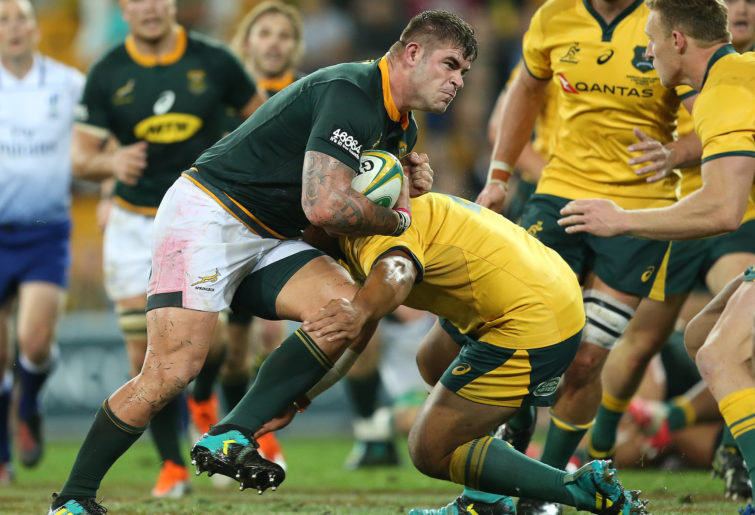
(Jono Searle/Getty Images)
The weakness for South Africa is a lack of recent, proven depth at flyhalf and fullback, the two positions from whence almost all well-worked Bok tries in 2018 and 2019 came. Handre Pollard picked the best possible time to have an injury. He has never been fitter and more raring to go. Willie le Roux excelled… in Japan.
But their back-ups are not clearly identified. Erasmus trusted old Frans Steyn over Elton Jantjies in the Cup. Morne Steyn, the old Lion tamer himself, is also in the mix and would seem to be the one you would want kicking from the halfway line with time expiring to win a series, not Jantjies or even Steyn.
If Pollard goes down, it is difficult to see the Boks winning, absent a vintage turn-back-the-clock Steyn display.
If le Roux is not in form, at this level, is it Steyn or the talented Damian Willemse, or lightning fast Aphelele Fassi? A left-field suggestion would be Kolbe at fullback, fresh off a 50-metre drop goal for Toulouse in the Top 14 final. Put this man in broken field from a wayward Lions kick and fasten your seat belts.
But in all likelihood, the British and Irish will bring their full might behind General Gatland, and try to match strength for strength, patch over the problems at 13, and can win by forcing the rusty Boks to make mistakes.
In all probability, the South Africans will come hard and relentlessly on defence and try to score from Lions’ mistakes or from deep positions and set pieces. If Stuart Hogg is fullback or Harris plays at 13, I am reasonably sure those errors will be forthcoming. Injury may force selections.
Excuses are unusually unavailable this time. The Lions are not undercooked, compared to the Boks. There is no home cooking. There are no hostile crowds. This is the Lions in a laboratory.
But of one thing we can be certain: ferocity.
Ferocity in the challenge, in the execution, in the fervour, in the tackle, and in the ruck.
There are mists of madness in every Lions tour. Plans gone awry. New heroes. Garish faults.
Just as in 1903, there is every reason for this tour not to happen, and if it does, for the visitors to win, easily.
But something tells me the ghosts of Newlands from all those years ago may find their way to the gleaming stadium at the foot of Lions Head mountain, and give these ‘lucky’ Boks, these descendants of struggle from long ago and now, asterisked world champions, fallow sportsmen ploughing up fields across the seas, just the kind of mystical boost needed to repel the red, confident Lions.

































































































